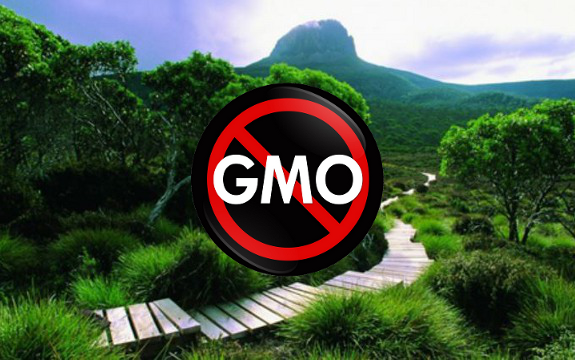Tasmania to Remain GMO Free for 5 more Years to Protect Honey Exports

 By now, you may know that honeybee populations have plummeted drastically over the last decade, and the numbers continue to fall. If you’ve read The Beekeeper’s Lament —Hannah Nordhaus’ inspired book about the complicated lives of America’s honeybees—you might ask, ‘what doesn’t kill bees’? There is no question that there are numerous factors to consider when looking at these insect deaths, but know that one of the primary factors is largely under our control – the use of GMOs and pesticides/neonicotinoids.
By now, you may know that honeybee populations have plummeted drastically over the last decade, and the numbers continue to fall. If you’ve read The Beekeeper’s Lament —Hannah Nordhaus’ inspired book about the complicated lives of America’s honeybees—you might ask, ‘what doesn’t kill bees’? There is no question that there are numerous factors to consider when looking at these insect deaths, but know that one of the primary factors is largely under our control – the use of GMOs and pesticides/neonicotinoids.
The island of Tasmania knows that GMOs are part of the demise of bees, so the citizens aren’t letting their pollinators – responsible for a huge honey business – perish due to biotech tomfoolery.
Primary Industries Minister of Tasmania, Jeremy Rockliff, has announced that the state will remain GMO-free for at least the next five years, and the state government can opt to extend the GMO ban for as long as they like.
Minister Rockliff said that the bill was re-asserted due to findings from last year’s review by the Department, which considered 160 public submissions and new market research. It received huge support from the state’s peak farming body, beekeepers and the ‘Greens’ political party.
“The review demonstrated that there is currently no imperative to change from having a moratorium,” he said. The Liberal Government believes that a five-year moratorium is a commonsense approach that strikes an appropriate balance between the needs of today and the possibilities of tomorrow.”
Minister Rockliff advised that the moratorium would be revisited prior to its expiry date in 2019. This news comes in support of another long-term ban posted this past January, when the former state government announced a 13-year moratorium on GM food crops would be continued indefinitely.
It isn’t just the ‘Greens’ who want a GE-free food supply, but with the help of these bans, the state can enjoy its famous honey-production industry to the full extent. Here is a list of foods we would lose without the bees, in case you don’t already know.
Approximately two-thirds of Tasmania’s honey production is derived from leatherwood blossoms. The remainder includes honey types such as clover, blackberry, and gum. The leatherwood flower is from early January to April and is the basis of the commercial industry in Tasmania. Without bees, which are obviously harmed by GMOs and the pesticides used on them, then the industry would be severely compromised.
The USDA is now putting forth millions to help save the honeybees, but with the continued use of and approval of new and current neonicotinoids, the money and efforts may unfortunately go to waste.
